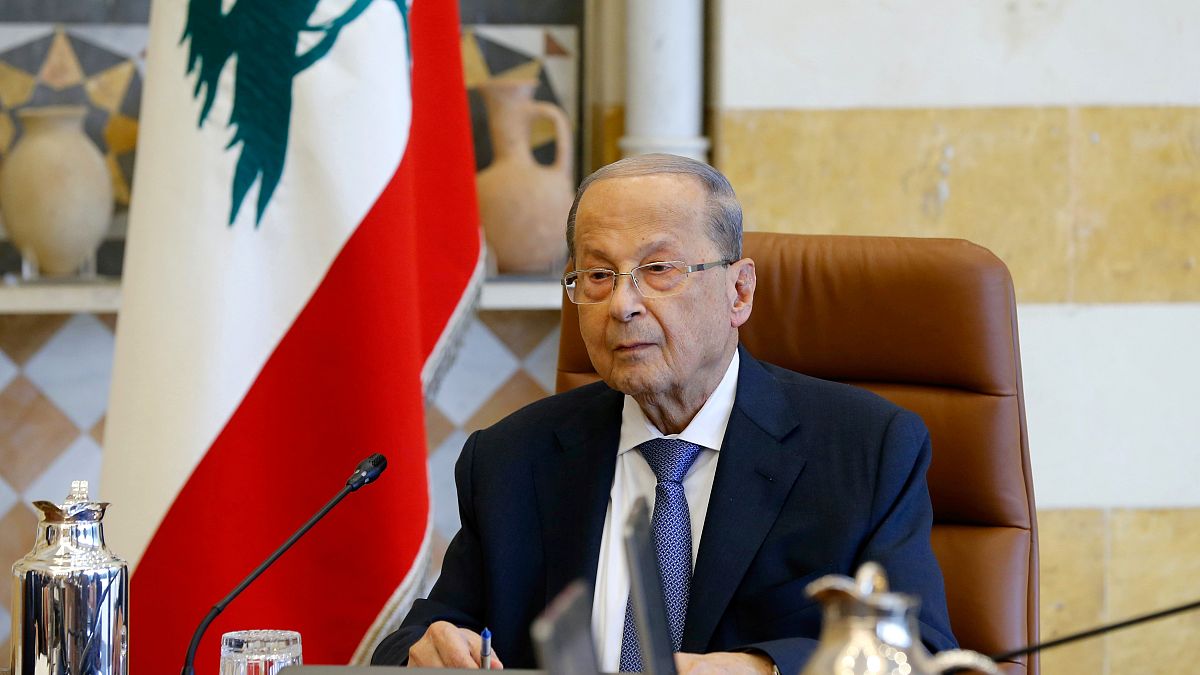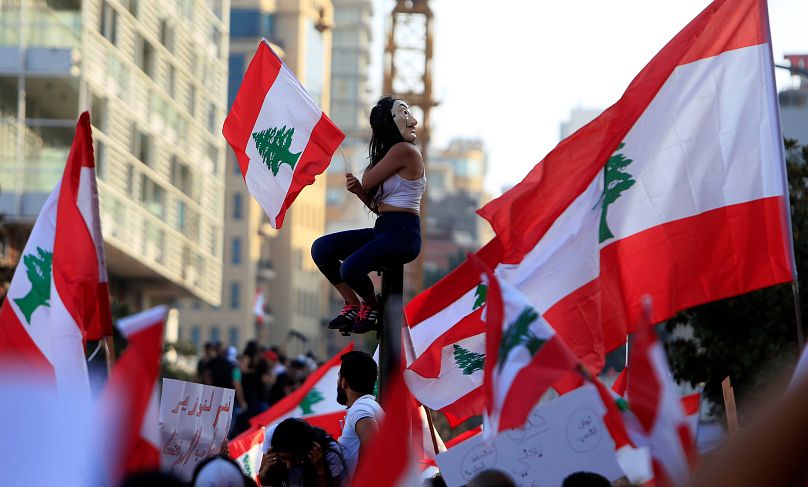Lebanese Prime Minister Saad al-Hariri agreed on Sunday a package of reforms to ease an economic crisis that has sparked nationwide protests.
The Lebanese government has approved reforms including halving ministers' wages in a bid to ease the economic crisis and defuse the protests that brought hundreds of thousands of protesters to the streets for five days.
Lebanon's cabinet on Monday discussed the last point related to the power sector after agreeing all the other points, the president's office said on Monday. The power sector reform is one of the biggest issues the government is tackling.
On Sunday, Lebanon's Prime Minister Saad al-Hariri agreed on a package of reforms with his government partners to tackle the crisis.
The reform plan includes a 50% cut in salaries of current and former presidents, ministers, lawmakers, and reductions in benefits for state institutions and officials.
It also includes the central bank and private banks contributing $3.3 billion to achieve a "near zero deficit" for the 2020 budget.
The government also aims to privatise the telecommunications sector and overhaul the crumbling electricity sector.
Hariri accused his rivals of obstructing his reform measures that could unlock $11 billion in Western donor pledges and help avert economic collapse.
The anti-government protests, fuelled by crippling economic conditions and anger at perceived government corruption, have fanned out across the country since Thursday.
Cheerful, buoyant and hopeful their protests would bring change, people of all ages and religions played patriotic songs and danced in the streets, with some forming human chains and chanting for their leaders to be ousted.
Festival-like scenes dominated the country from the capital Beirut to remote towns, with loudspeakers blaring music as crowds kept pouring into the streets.
Watch: Protesters in Lebanon flood streets for fourth day
Ending rampant corruption is a central demand of the protesters, who say the country's leaders have used their positions to enrich themselves for decades.
Many blamed the ruling elite for driving their children out of Lebanon because they failed to build a country that could provide jobs.
Army troops and security forces deployed across the country and blocked roads leading to the presidential palace. Banks said they would remain closed on Monday and the main labour union announced a general strike, threatening further paralysis.
A chorus of voices, from union leaders to politicians, have joined popular calls for Hariri's government to resign. The Maronite Christian Lebanese Forces party has said its four ministers would withdraw from the government.
But the approval of the reforms by Hariri's partners seem to have met his conditions and would most likely push him to stay the course, government sources said.
If Hariri, a Sunni Muslim who is traditionally backed by the West and Sunni Gulf Arab allies, resigns, it would be harder for the various parties that make up the ruling coalition to form a new cabinet.
The reforms also called for establishing new regulatory and transparency bodies within a "short period" of time to oversee reform plans.

